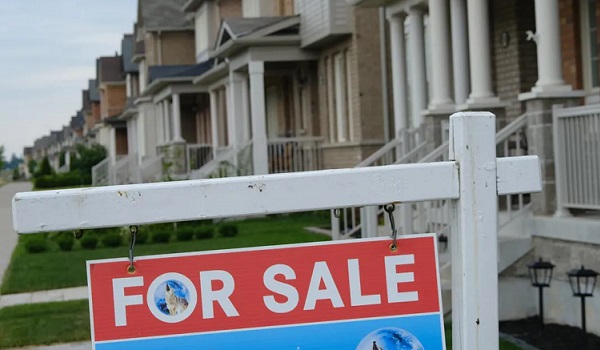Toronto area home sales remain ‘confident and surprisingly active,’ in the first half of 2024
The GTA’s luxury real estate market has remained “confident” and “surprisingly active” in the first half of the year, defying the headwinds of elevated interest rates and a stagnant Canadian economy that have dragged down other areas of the housing market.
Luxury residential real estate sales over $4 million for condos, semi-detached and single-family homes in the GTA were up 8 per cent year over year in the first half of 2024 compared to the first half of 2023, according to a Wednesday morning report from Sotheby’s International Realty Canada.
Helping to bolster the market was an annual population gain of more than 221,000 people to the region, the report said, however the concurrent net loss of 93,000 residents out of the GTA weighed on “top tier market sentiment and performance.”
“Right across the country we’ve seen population gains due to interprovincial migration and regional migration,” said Don Kottick, CEO and president of Sotheby’s International Realty Canada. “There are regional migrations out of Toronto to other parts of Ontario and it shows us the vulnerabilities in our housing market,” as more people leave the expensive city, impacting all levels of the real estate market.
In Toronto, sales for homes over $4 million were up a marginal 4 per cent year over year, with the ultra-luxury transactions over $10 million declining to three properties sold compared to five sold in the first half of 2023. Real estate sales over $1 million saw a 7 per cent annual decline.
“It largely comes down to affordability in Toronto,” said Kottick. “There’s more affordable locations in the suburbs,” adding that with more green space and bigger property sizes, residents’ dollars can stretch further outside of Toronto.
Still, Toronto neighbourhoods such as Lawrence Park, Rosedale and Leaside continue to perform well — when a property comes to market it’s quickly snatched up, no matter the real estate climate, he said.
A near balanced market tips toward buyers
Currently, the luxury real estate market is balanced and competition amongst buyers has slackened, giving buyers stronger positions for “favourable negotiations” and “ample time” to make decisions, the report said.
“Although the GTA luxury market hovered near balanced conditions throughout the first half of the year, performance varied by neighbourhood, with several areas, especially those outside the city of Toronto, favouring buyers by mid-year” due to the surge of listings, the report added.
According to Sotheby’s International Realty Canada experts, the current market conditions for luxury buyers to negotiate are the most favourable since 2017, when the federal government first implemented the minimum mortgage stress test “to cool the overheated housing market.”
“As a result, it is imperative for properties to be realistically priced for immediate market norms to achieve the sale of a luxury home,” the report noted.
Buyers aren’t pressured to close deals, Kottick said, and it’s important for sellers to meet market expectations and price accordingly. That’s why the homes priced at $1 million and more are struggling to sell, as many might not be priced right for the buyer pool.
Luxury condo market sees swell of inventory
Toronto’s luxury condo market continued to transition in favour of buyers in the first half of 2024, the report said, as inventory swelled and buyers hesitated to commit. Condos in the GTA priced over $4 million saw a 5 per cent annual gain with 22 units sold of which 21 units were sold in Toronto, but condo sales over $1 million declined 11 per cent year over year in the city.
Looking ahead, economists forecast more Bank of Canada key interest rate cuts, and while wealthy buyers and sellers in the ultra-luxury market aren’t impacted significantly by interest rates, there will still be a knock-on effect.
“Once the conventional end of the market has more movement it spurs activity higher up,” Kottick said. “Sometimes those sellers then move up to buy more luxury real estate, so it spurs activity as people upsize to more expensive property.”
This article was first reported by The Star













